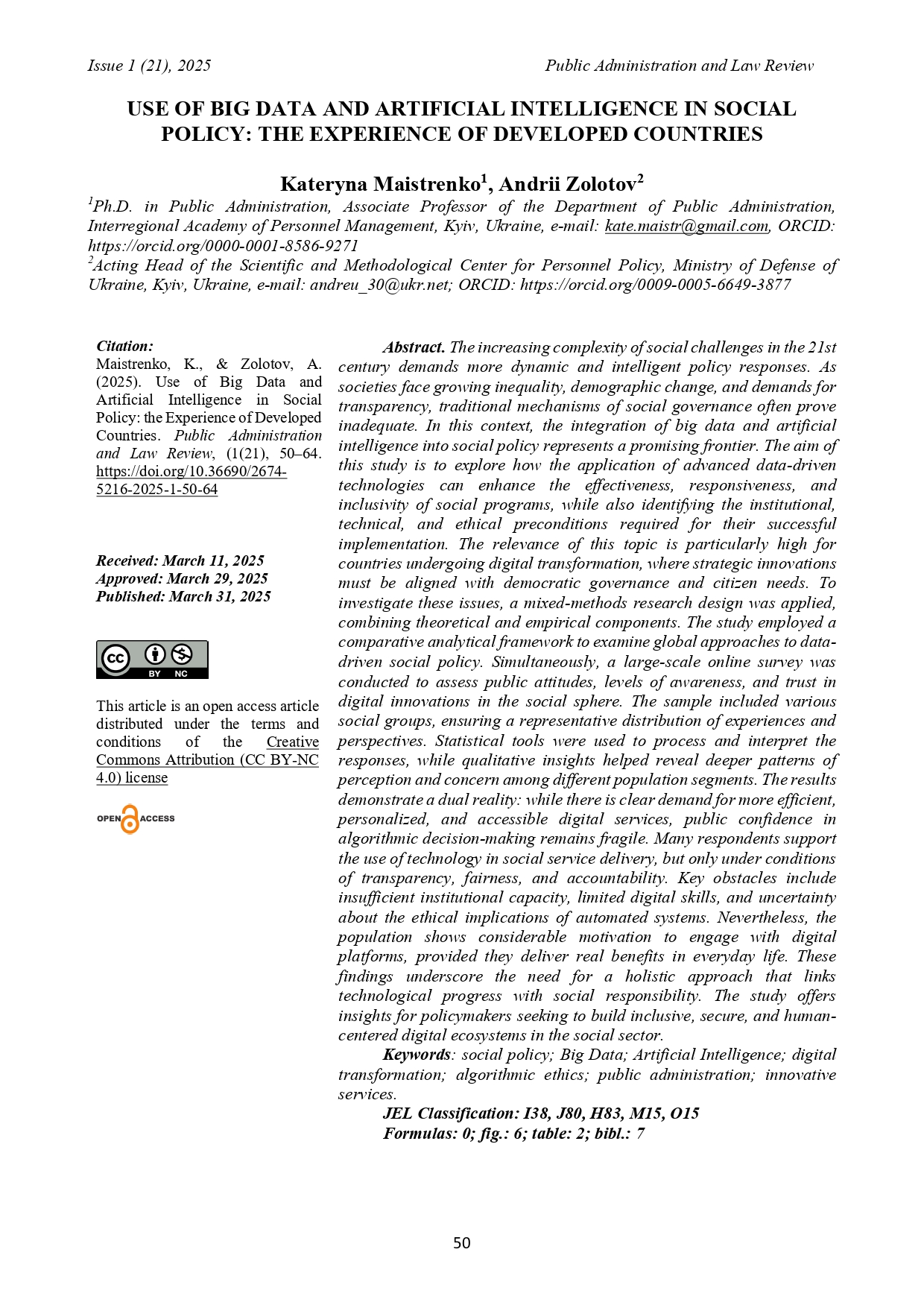USE OF BIG DATA AND ARTIFICIAL INTELLIGENCE IN SOCIAL POLICY: THE EXPERIENCE OF DEVELOPED COUNTRIES
DOI:
https://doi.org/10.36690/2674-5216-2025-1-50-64Keywords:
social policy, Big Data, Artificial Intelligence, digital transformation, algorithmic ethics, public administration, innovative servicesAbstract
The increasing complexity of social challenges in the 21st century demands more dynamic and intelligent policy responses. As societies face growing inequality, demographic change, and demands for transparency, traditional mechanisms of social governance often prove inadequate. In this context, the integration of big data and artificial intelligence into social policy represents a promising frontier. The aim of this study is to explore how the application of advanced data-driven technologies can enhance the effectiveness, responsiveness, and inclusivity of social programs, while also identifying the institutional, technical, and ethical preconditions required for their successful implementation. The relevance of this topic is particularly high for countries undergoing digital transformation, where strategic innovations must be aligned with democratic governance and citizen needs. To investigate these issues, a mixed-methods research design was applied, combining theoretical and empirical components. The study employed a comparative analytical framework to examine global approaches to data-driven social policy. Simultaneously, a large-scale online survey was conducted to assess public attitudes, levels of awareness, and trust in digital innovations in the social sphere. The sample included various social groups, ensuring a representative distribution of experiences and perspectives. Statistical tools were used to process and interpret the responses, while qualitative insights helped reveal deeper patterns of perception and concern among different population segments. The results demonstrate a dual reality: while there is clear demand for more efficient, personalized, and accessible digital services, public confidence in algorithmic decision-making remains fragile. Many respondents support the use of technology in social service delivery, but only under conditions of transparency, fairness, and accountability. Key obstacles include insufficient institutional capacity, limited digital skills, and uncertainty about the ethical implications of automated systems. Nevertheless, the population shows considerable motivation to engage with digital platforms, provided they deliver real benefits in everyday life. These findings underscore the need for a holistic approach that links technological progress with social responsibility. The study offers insights for policymakers seeking to build inclusive, secure, and human-centered digital ecosystems in the social sector.
Downloads

Downloads
Published
How to Cite
Issue
Section
License

This work is licensed under a Creative Commons Attribution-NoDerivatives 4.0 International License.





